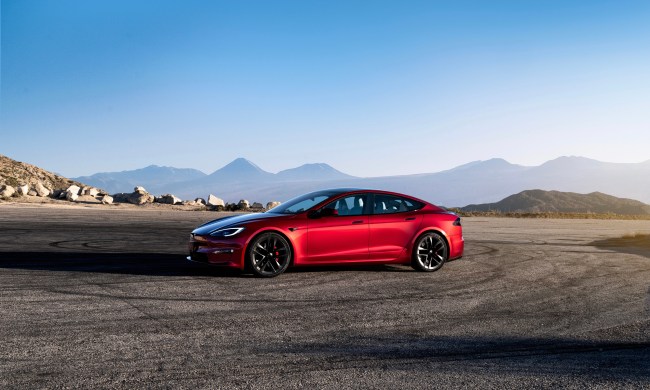Rumored a year ago, echoed at The Automotive World Congress, and now, finally, from the electric vehicle automaker itself, Tesla has announced that its entry-level Model 3 will retail for $35,000.
On to some math:
A $7,500 federal tax credit will be layered on top of the sticker price (for all buyers who at least meet a $7,500 tax liability) before state subsidies like a $2,500 credit from California, Tennessee, and Massachusetts, or a smile-inducing $6,000 from Colorado are factored in. Some states, like Georgia, refuse to offer any additional incentives, but it won’t surprise anyone that Georgian residents don’t put in many EV orders.
That means Colorado residents who can collect all available credits will be able to own a Model 3 for just $21,500. For those who can only cash in on the federal government’s incentives, the Model 3 will cost $27,500.
Compared to other EVs on the market, the Model 3 will be priced smack-dab in the middle of the range. Here are the following pure-EV prices, after incentives: Volkswagen’s Golf EV: $21,495, Nissan’s Leaf: $21,510, Ford’s Focus Electric: $21,670, Fiat’s 500e: $24,800, Kia’s Soul EV: $26,200, Ford’s Fusion Energi: $29,893, and BMW’s i3: $34,900.
For greater perspective, the average transaction price for a new car in the U.S. is $33,800.
Best of all for Tesla fans is that the Model 3 will boast a range of 200 miles or more on a single charge and Tesla’s Supercharger network is now in full swing, so rapid charging on the go won’t be nearly as much of a chore as it was when the Model S first came out.
Beyond its price, information about the Model 3 is limited, but we do know it will be about 20 percent smaller than the Model S and should be styled similar to its sibling. The new vehicle’s unveiling should take place in a few weeks time.


